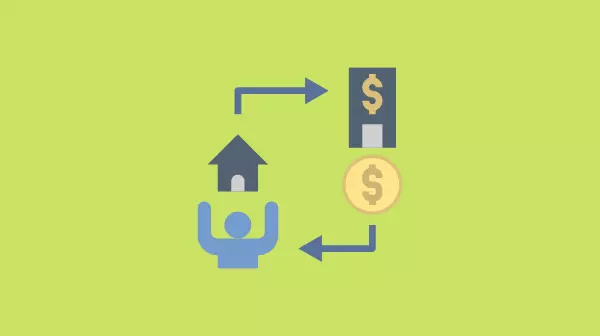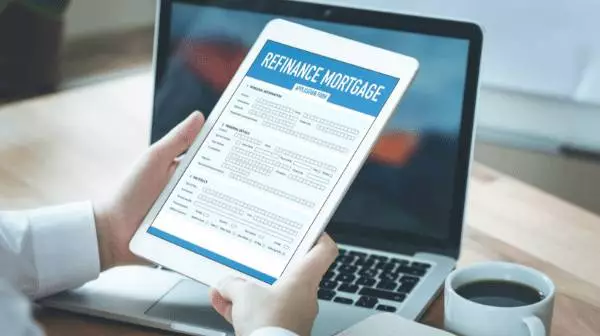Refinance mortgage : Introduction
Are you looking for the best loan terms to refinance mortgage? You’re in luck because many options are available for refinancing your home. Your current loan will determine how much money you can put down and how much interest you’ll pay, but with a new loan, you may be able to shave years off of your repayment period. This is one of the most important questions to ask yourself when considering whether or not to refinance, so here are some things you should know before deciding to refinance.

Why refinancing?
You may be wondering why you should refinance your home loan.
Some of the most common reasons are to lower your monthly payments, save for retirement, or free up cash for other investments.
Unlike a traditional mortgage, which is typically set up over 20 years and has fixed rates with fixed payments for a certain number of years, refinancing allows you to pay off your loan earlier and take on a new loan that may have variable rates and variable payments.
Your terms will depend on how much equity you have in your home and what loan you want.
You could also consider taking out a shorter-term mortgage if you know that you might need the money sooner than 20 years down the line.
But, again, there are plenty of online and in-person resources where you can compare different options like interest rates, repayment periods, fees, etc.
How to determine your current loan
-What amount can you afford to put down on the new loan?
-What is your current interest rate?
-What are the terms of your current mortgage?
These three questions will help you determine which type of loan best suits your needs.
What are the best refinancing options?
Refinancing your mortgage is a big decision that may have a big impact on the rest of your life. You want to be sure you make the right choice for your family and finances. Before refinancing, consider the following guidelines, so you know what to expect:
-Refinancing can reduce your monthly payments by more than 50%.
-Getting a loan with lower interest rates can help save money over time.
-Refinancing can lower the amount of taxes you pay on your mortgage.
-You’ll have more options when it comes to choosing your home loan company if you refinance.
-The rules for taking out a new mortgage are different if you refinance, so be sure to check with a licensed lender before jumping into any decisions!
What are the costs of refinancing?
The process of refinancing your mortgage will vary depending on your current loan.
For example, if you have a 20-year loan and want to refinance into a 30-year loan, the process will be different than if you only have a 10-year loan.
This is because the interest rate will be different, and so will the fees associated with refinancing.
You’ll also be able to put down more money to secure the new loan.
It would be best to consider all of the costs involved with refinancing before making a decision that might affect your finances in the future.
For example, you could end up paying more than necessary because of changes in taxes or closing costs.
To help ensure that you’re getting the right information about refinancing, ask for quotes from two or three lenders before deciding what is best for your situation.
Which loans should you consider for refinancing?
There are many loan options available for you to consider when looking to refinance. Your current loan will determine which one is best for you, but your situation must meet the loan requirements. Here are some of the most common loans to consider:
– Home equity loan
– ARMS (Adjustable Rate Mortgages)
– ARM (Adjustable Rate Mortgage)
– Fixed-rate mortgage
The interest rates on these loans vary, so they may be worth considering depending on your borrowing needs. However, you should also know how long the repayment period is and whether or not there are prepayment penalties associated with the loan.
Determine your budget
The first step to looking for the best loan is to assess your budget.
Consider your monthly expenses, what you plan on using the money from refinancing for, and how far you are from your current loan’s end date.
If you’re not sure if refinancing is right for you, be sure to speak with a lender about what types of loans are available in your area before committing.
the best mortgage refinance rates
The process of finding a new loan is relatively simple, though the best mortgage rates may be much harder to find.
You’ll need to start by looking at your current loan and comparing it with what you can afford or what you’d like your monthly expenses to be in the future.
Next, consider how long you’ll need the money for and whether or not refinancing will make that happen for you.
If so, then you can set about comparing loan terms and fees.
Finally, it’s important to compare interest rates because they will be the largest factor in determining how much you’ll pay back over time.
It would help if you also looked into costs such as closing fees, prepayment penalties, and origination fees before deciding which way is better.
If refinancing is your goal, some lenders may offer discounts on these costs, but this isn’t always the case.
Conclusion
There are many reasons to refinance your mortgage. And, of course, there are many benefits. To help you determine whether refinancing is right for you, here are seven things to consider.
1. Why Refinancing?
2. How to Determine Your Current Loan
3. What Are the Best Refinancing Options
4. What Are the Costs of Refinancing?
5. Which Loans Should You Consider for Refinance?
6. Determine Your Budget
7. Best Mortgage Refinance Rates
If you enjoyed this article, please share it and leave a comment. also see: 3 Benefits of Cash Out Refinancing on Investment Property
